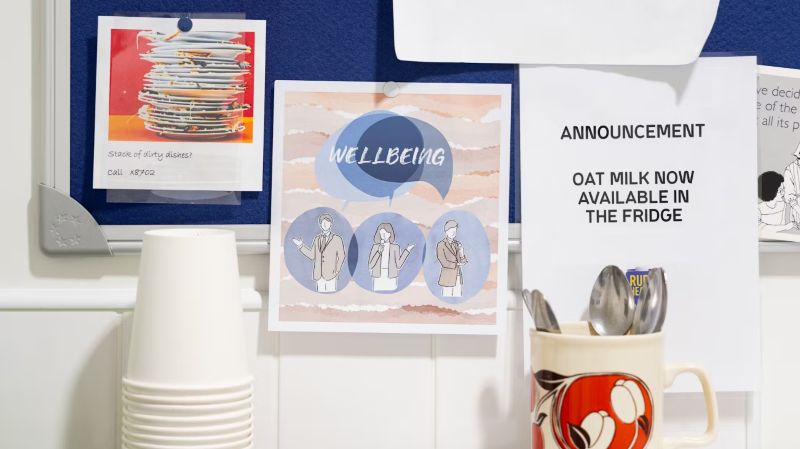
‘Workaholics’ are driven to work excessively, even despite the negative impact this has on health.

By Teena J Clouston
Professor in Occupational Therapy, Life Balance and Wellbeing
Cardiff University
As a culture, we’ve come to value growth and productivity, making paid work not only a necessity, but a central concern in peoples’ lives. Yet this attitude towards work is harming us more than it’s helping, with research showing that workaholism (also known as work addiction) is a growing problem in the industrialised world. And according to the findings of a recent study, work addiction is linked with poorer mental health.
Work addiction is a clinical condition characterised by an obsessive and compulsive interest in work. People usually work more than they’re required to, either by the workplace or because of financial need. Other characteristics include being concerned about their performance at work, rigid thinking and perfectionism, which is often projected onto others.
People with work addiction are driven to work excessively, despite the detrimental impacts this has on their personal health and wellbeing, and relationships. People at risk of developing work addiction often have low self esteem, experience doubt about their performance at work, or have obsessive compulsive personality traits.
Numerous studies have shown the negative impact of work addiction on mental health. But a recent study on workers in France investigated why work addiction happens to better understand the impact it has on mental and physical health.
The researchers looked at a total of 187 workers from a range of different occupations and demographics, who were asked to answer four different questionnaires. They found that high work demands and people who worked in high pressure roles – for example managers with greater responsibilities – were the most significant factors contributing to the risk of work addiction.
Where this was accompanied by working longer hours than required and having an obsessive approach to work, there was an even greater risk of developing work addiction. Women were also shown to be more predisposed to developing work addiction than men. Although it’s not entirely clear why women were more likely to develop work addiction, other research has had similar findings.
Workers with depression were twice as likely to develop work addiction compared to those without a mental health issue. Poor quality of sleep, high levels of stress and low levels of overall wellbeing were also identified as high risk factors.

Although this study’s sample size was small, previous research has also shown that work addiction is associated with depression, stress, sleep disorders and lower mental health. Burnout and exhaustion were also reported.
Mental Health
Work addiction is more common in industrialised countries where work performance is a measure of success. This suggests that neoliberal ideas about work are influential in increasing the risk of work addiction. These ideas place pressure on intensifying workloads and performance at work in order to promote economic growth. They also focus on increasing a person’s responsibilities at work.
Given the harms of work addiction, radical changes in both workplaces and society will be necessary. As I have argued before, this would require society to stop viewing work as a pivotal tool of performance and growth, and instead place greater value and importance on the health and wellbeing of the worker, both individually and collectively.
Support and change can actually happen in the workplace itself, which is why it’s important for employers to recognise and address work demands in a positive way. For example, one study has found that increasing job security and opportunities for development lowered the risk of work addiction.
Other studies have suggested that work-life balance interventions could reduce the risk or work addiction. For example, if workplaces actively reduce working hours in order to give employees a chance to spend more time with their family, it can actually result in better work performance. And, fewer working hours may also reduce family conflict for workers, as employees are able to engage in family time more meaningfully.
Promoting work-life balance has also been shown to increase both physical and psychological health, and personal resilience for workers. Balancing time and energy used on work and personal life helps people feel better – subsequently both improving mental and physical health.
All this suggests that workplaces should develop work-life balance initiatives, provide opportunities for career development and increase job security to prevent work addiction from happening. These changes may also lower stress and absenteeism while improving performance.
But not all workplaces have these kind of strategies in place – and they can be hard to implement because of our culture’s focus on performance and economic growth. If you’re concerned you have or are developing work addiction, address the problem now if possible.
Seek support at work by talking to managers and peers if you can, ask for performance feedback, or even see if there is a way you can work to reduce some of your working hours. Speaking to mental health and wellbeing services can also help. If you don’t have support in your workplace, try talking with friends and family, and ask for their help in refocusing your time – such as having them remind you to take breaks from work.
Of course, better work-life balance will help, but this can be a very hard thing to do as it requires adjusting daily patterns and changing how you think and feel. But if you’re able to balance work with other activities – such as seeing family and friends, exercising, or enjoying hobbies – your mental health and wellbeing will improve.
Originally published by The Conversation, 02.08.2021, under the terms of a Creative Commons Attribution/No derivatives license.






